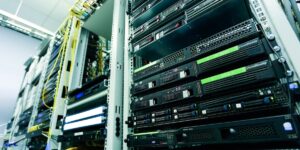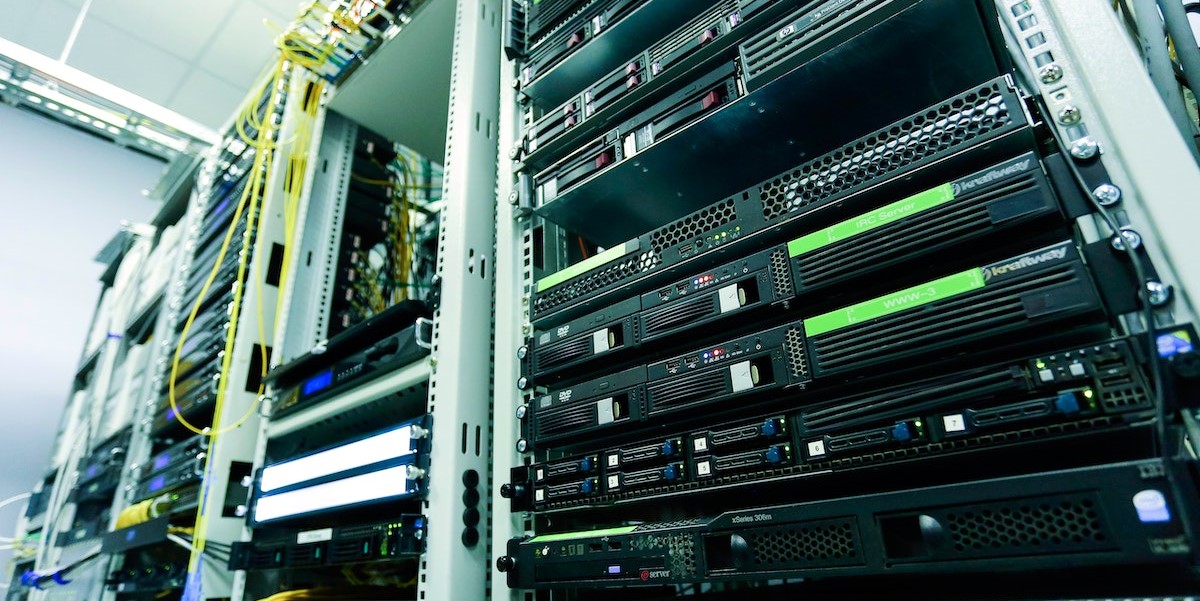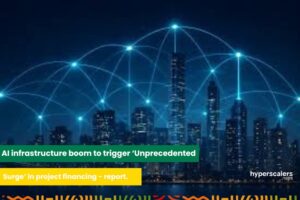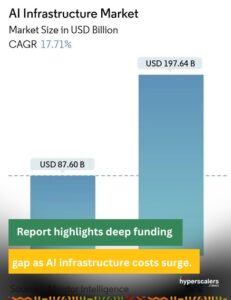Article Written by Vremudia Oghene-Ruemu
In today’s digital age, data has become the lifeblood of businesses and societies, and Nigeria is no exception. With the ever-increasing demand for faster and more reliable internet services, the need for robust data center infrastructure has never been more critical.
Following the gradual proliferation of larger aggregation data centers across the country, EDGE data center infrastructure is gradually primed for rollout in the midterm across Nigeria to fix data center infrastructure gaps and enable shorter times to market for critical infrastructure hosting requirements.
To successfully deploy data centers, Nigerian operators need to ensure adherence to certain pre-requisites that typically determine success in either aggregation or EDGE data center scenarios.
Location: Locations need to be accessible, close to connectivity infrastructure and in relative proximity to power infrastructure. Due to the size of EDGE infrastructure, operators can become creative with location requirements.
Bottom of Telecom Towers (BOTT):To rapidly deploy EDGE infrastructure, leveraging existing telecom tower infrastructure is a smart move. Placing EDGE data centers at the bottom of telecom towers allows for a quick rollout, minimizing the need for additional real estate. This approach not only accelerates deployment but also ensures widespread coverage, especially in remote or underserved areas.
Urban Centers with High Foot Traffic:An ideal location for Nigeria’s EDGE infrastructure could be urban centers with high foot traffic, such as shopping malls, stadia, and public transportation hubs. These locations offer several advantages, including proximity to a large user base, accessibility, and the ability to serve as a hub for various services, from e-commerce to mobile applications. Placing EDGE data centers in shopping malls can significantly improve the user experience by reducing latency and enhancing data throughput.
Connectivity:
Access to connectivity is crucial for EDGE data centers as it is one of the elements that determines the success and effectiveness of EDGE infrastructure. Connectivity to these data center locations enables content, data storage, and compute capabilities closer to end users. With adequate connectivity in place, the processes below are now achievable:
Low-Latency Data Processing: To achieve this, fast and reliable connectivity must exist to transmit data between the edge location and the central data center or cloud. Low latency is essential for applications like real-time analytics, IoT, and immersive experiences (e.g., augmented reality, virtual reality).
Real-Time Data Processing:Many use cases for EDGE data centers require real-time data processing. For instance,industrial automation, and smart cities rely on immediate data analysis and decision-making. Without robust connectivity, achieving real-time processing becomes challenging or impossible.
Data Collection and IoT: EDGE data centers often serve as hubs for data collection from IoT sensors and devices. Without connectivity, they cannot gather data efficiently, impacting applications like industrial IoT, smart agriculture, and environmental monitoring.
Resilience and Redundancy:Connectivity redundancy is critical for ensuring uptime and reliability. EDGE data centers need multiple network connections and failover mechanisms to handle potential network outages. This is especially important in mission-critical scenarios.
Data Synchronization: EDGE data centers often work in tandem with central data centers or cloud services. To ensure data consistency, synchronization between the edge and central locations is necessary. This requires constant connectivity.
Remote Management and Updates: To efficiently manage and maintain EDGE data center infrastructure, administrators require remote access and the ability to perform updates and maintenance tasks. Connectivity facilitates remote management, reducing operational costs.
Scalability and Flexibility: As the demand for data processing grows, EDGE data centers may need to scale their infrastructure. Connectivity allows for the seamless integration of additional edge locations into the network, ensuring flexibility and scalability.
Security: Security is a paramount concern for data centers. Connectivity is essential for implementing security measures like firewalls, intrusion detection systems, and encryption, safeguarding data, and infrastructure from cyber threats.
And finally, User Experience: Many EDGE applications aim to enhance the user experience. Whether it’s for online gaming, video streaming, or e-commerce, fast and reliable connectivity is critical to provide users with a seamless and enjoyable experience.
In summary, as EDGE technology continues to advance, the importance of connectivity will only grow, making it a key consideration for organizations and policymakers investing in EDGE data centers.
Power:
Access to reliable and sufficient power is critical for EDGE data centers as well. Power is the lifeblood of the data center, and its importance cannot be overstated. With robust power infrastructure in place, the scenarios below are now achievable:
Continuous Operation: Data centers are expected to operate 24/7 without interruption. Even a brief power outage can result in significant data loss, service downtime, and financial losses. Therefore, having access to reliable power sources and backup systems, such as uninterruptible power supplies (UPS) and generators, is essential to maintain uninterrupted operations.
Cooling and Temperature Control: EDGE data centers generate a significant amount of heat due to the operation of servers and networking equipment. Adequate power is required to run cooling systems and maintain a controlled temperature within the data center. Overheating can lead to equipment failure and reduced operational efficiency.
Data Security:Data centers house sensitive and valuable data. Power disruptions or fluctuations can potentially lead to data corruption or loss. Proper power conditioning and backup systems protect against these risks and ensure data integrity and security.
Network Connectivity: Network equipment and communication infrastructure within the data center rely on consistent power to maintain connectivity. Any interruption in power can disrupt network services and impact communication between data centers, clients, and end-users.
Scalability: As demand for data processing and storage increases, EDGE data centers may need to expand their infrastructure. This expansion requires additional power capacity to support new servers and equipment. Adequate planning for power scalability is crucial to accommodate future growth.
Energy Efficiency: While power is essential, it’s also vital to use it efficiently. High-energy efficiency practices, such as using energy-efficient hardware, optimizing cooling systems, and implementing renewable energy sources, can reduce operational costs and environmental impact.
Cost Management:Power costs are a significant part of a data centre’s operating expenses. Efficient power management strategies can help control costs and improve the overall sustainability of the data center.
In summary, access to power is not just important; it is foundational for the reliable and efficient operation of EDGE data centers. EDGE DC providers must prioritize power infrastructure planning, redundancy, and management to ensure that their data centers can meet the demands of modern applications and services while maintaining uptime, data security, and cost-effectiveness.
While location and power requirements are most achievable now, it is essential to highlight that broadband penetration is the linchpin for successful EDGE deployments in Nigeria. To realize the full potential of EDGE data centers, the country must continue to proliferate connectivity. This entails investing in fiber-optic networks, improving network infrastructure, and fostering an enabling environment for connectivity and data center players.
The diverse use cases for EDGE data centers, from 5G to smart cities, make them a vital component of the country’s digital future. To make this vision a reality, continued investment in broadband connectivity and a conducive operating environment for connectivity and data center players is crucial.
In conclusion, the promise of new EDGE data center infrastructure in Nigeria promises to revolutionize the country’s digital landscape. By strategically placing these facilities in high footfall locations, or at the bottom of telecom towers, Nigeria can ensure rapid deployment and coverage capable of unlocking the full potential of EDGE technology and enabling a new era of connectivity and innovation.
Vremudia is an experienced Product Management/Marketing and Strategic Business Development Professional, with experience garnered across various roles and projects in African and European Markets.





